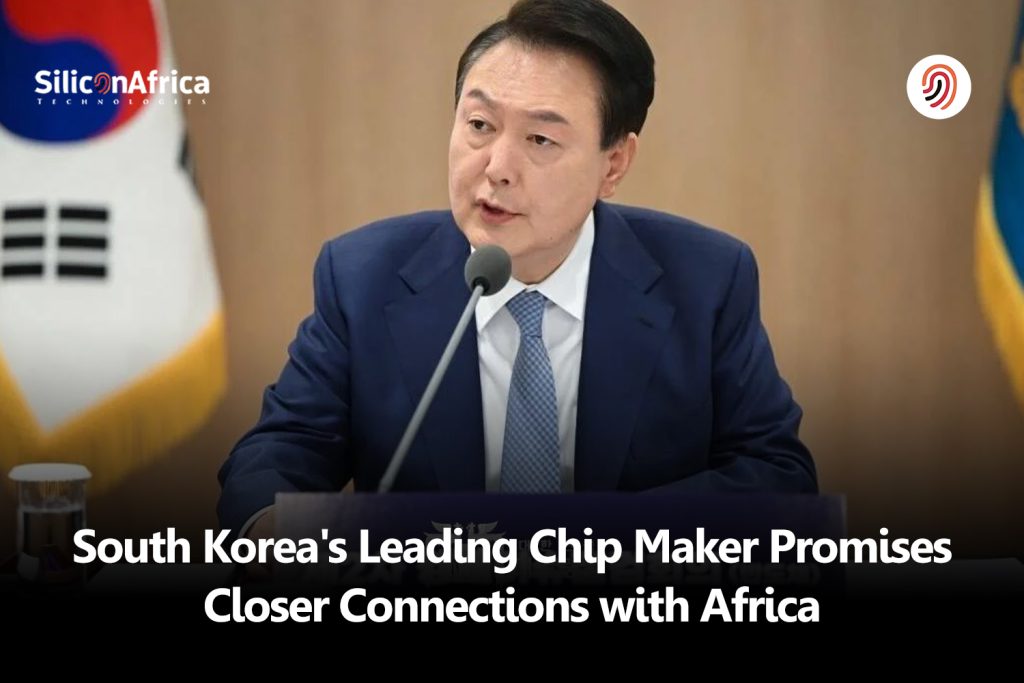Physical Address
60 Ekwema Cres, Layout 460281, Imo
Physical Address
60 Ekwema Cres, Layout 460281, Imo

Expansion to Africa has been ongoing for a while, and South Korea has keyed into this initiative. South Korea has decided to expand development aid to Africa. The country plans to pursue deeper cooperation with the African region on vital minerals and technology. South Korea’s chip maker form ties with Africa.
President Yoon Suk Yeol emphasized the purpose of the expansion on Tuesday as he hosted African leaders in Seoul.

At the summit, he hosted the leaders of 48 African nations. Yoon said South Korea would increase development aid for Africa to US$ 10 billion over the next six years. This is due to the vision South Korea has to tap the continent’s rich mineral resources. Additionally, it explores the potential as a vast export market to the African region.
Yoon said, “The Critical Minerals Dialogue launched by South Korea and Africa will set an example for a stable supply chain. This will be through mutually beneficial cooperation and contribute to the sustainable development of mineral resources around the world.”
Following the meeting, South Korea and the African nations declared that they would start high-level talks strived at improving cooperation over minerals.
The African region is a major source of nickel, cobalt, graphite and lithium. These are crucial for technology industries such as semiconductors, batteries and electric vehicles, which are major export items for South Korea.
Also Read: South Korea’s $470 Billion Technological Revolution
South Korean officials highlighted the benefits of the expansion. They stated that the expanding ties in minerals and other natural resources would ensure a strong supply chain strength in the country’s technology industries.
However, there are concerns that South Korea may face growing challenges in securing a stable supply of core minerals. This is due to securing a much smaller number of mines than the United States, China, and Japan.
Yoon said South Korea also plans to introduce a “Tech4Africa” initiative as part of the expansion. It will expand its cumulative development aid contributions to Africa to around $10 billion by 2030. Also, it will separately provide $14 billion in export financing to encourage South Korean investment in the region.
The African leaders present at the summit welcomed South Korea’s “Tech4Africa” initiative. They highlighted that it was aimed at supporting the education and training of Africa’s young population.
AU chair and Mauritanian President Mohamed Ould Ghazouani, at a joint news conference with Yoon, said African countries were looking to learn from Korea’s experience in developing human resources, industrialisation and digital transformation. They saw the expansion as an investment into the continent’s future.
Park Jong-dae, a former South Korean ambassador to South Africa and Uganda, argued Western and Chinese models of development had failed African nations, and South Korea offered a valuable alternative path.
He said, “The essence of the Korean model of development cooperation is human development. It is also about management, rather than about the provision of assistance.
Korea has the experience and know-how of development, while many African countries have immense possibilities for development not yet to be explored. Or untapped resources and endowment, and a dynamic young population.”
In a joint statement, South Korea and the African nations endorsed their commitment to the full implementation of the U.N. Security Council resolutions against North Korea. They highlighted the implications of the measures taken to achieve a complete nuclear disarmament of the Korean Peninsula.